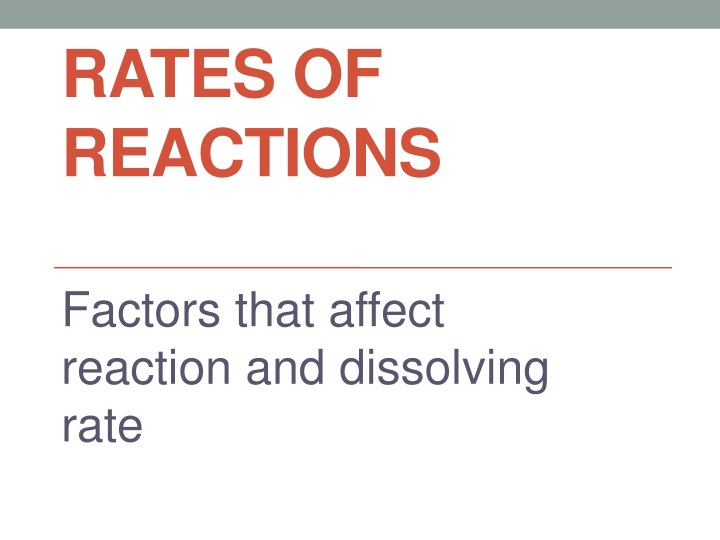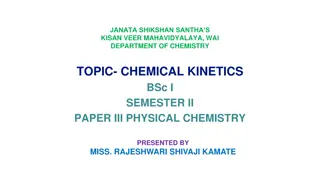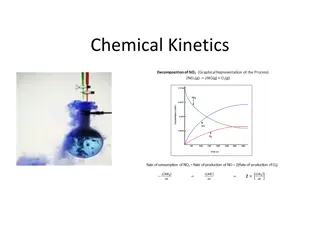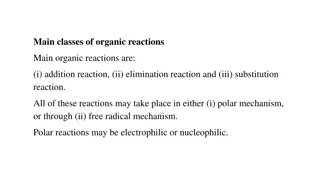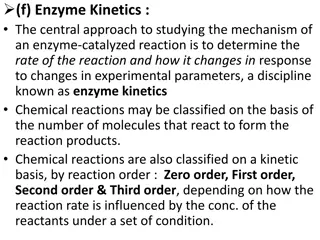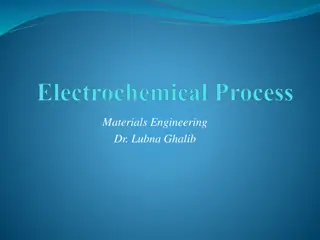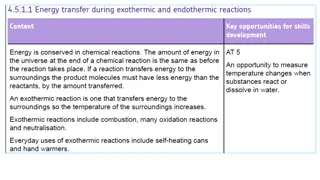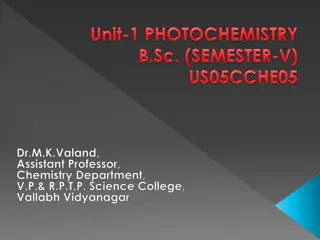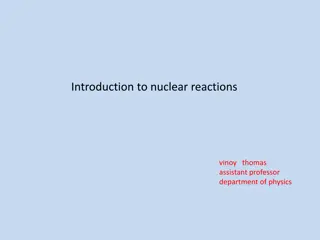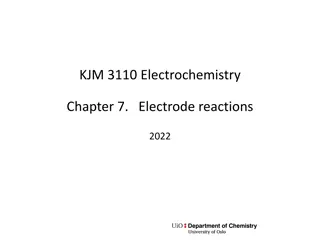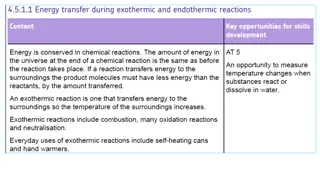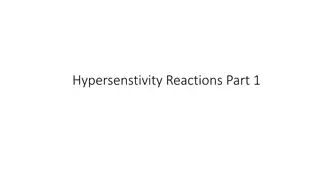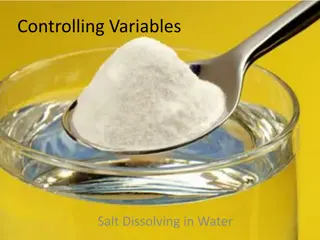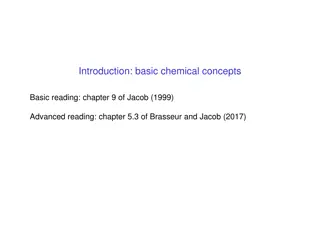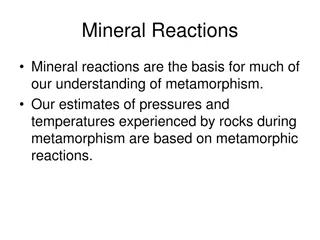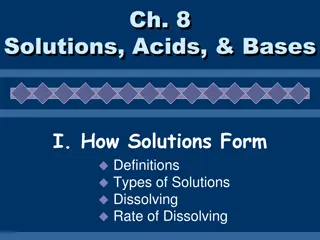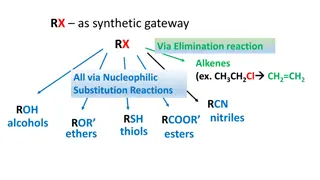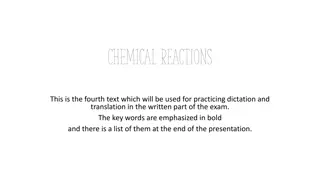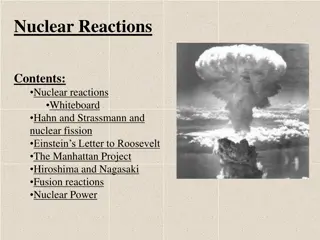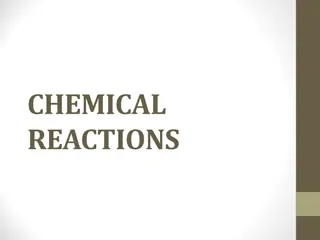Factors Affecting Rates of Reactions and Dissolving Rates
Factors like temperature, surface area, stirring, concentration, pressure, particle size, and catalysts can significantly impact the rates of reactions and dissolving processes. By understanding these factors, one can control and optimize reactions in various chemical and biological systems.
Download Presentation

Please find below an Image/Link to download the presentation.
The content on the website is provided AS IS for your information and personal use only. It may not be sold, licensed, or shared on other websites without obtaining consent from the author.If you encounter any issues during the download, it is possible that the publisher has removed the file from their server.
You are allowed to download the files provided on this website for personal or commercial use, subject to the condition that they are used lawfully. All files are the property of their respective owners.
The content on the website is provided AS IS for your information and personal use only. It may not be sold, licensed, or shared on other websites without obtaining consent from the author.
E N D
Presentation Transcript
RATES OF REACTIONS Factors that affect reaction and dissolving rate
1) TEMPERATURE higher temp = faster reactions The higher the temperature, the faster the particles will move, therefore making the reaction and dissolving happen faster Ex. Tea in hot water vs. cold water
2) SURFACE AREA more surface area = faster reactions If more of the surface is showing, there are more places for the reaction to hit the substance Ex. Sugar cube vs. granules
3. STIRRING OR SHAKING Stirring = faster reaction Mixing the substances involved in the reaction or mixture allows for faster dissolving or reacting. Ex. Take the sugar from the previous example and now stir it.
4) CONCENTRATION Higher concentration = faster reactions If there are more particles in a certain sized space, there will be more collisions between those particles forcing the reaction to happen faster. Ex. Two boxes of same size (volume), one has many marbles in it, one has few. Listen for collisions.
5) PRESSURE Higher pressure = faster reactions Goes along with concentration, if the volume of the container gets smaller with the same amount of particles in it, there will be less room to move thereby increasing the pressure. Ex. Willy Wonka shrinking room scene https://www.youtube.com/watch?v=YaMmAFLm5EI
6) SIZE Big particles = slower reactions Small particles = fast reactions Larger particles cannot move as fast making the reaction slower. Ex. Rolling a tennis ball down the hall vs. a medicine ball
7) CATALYSTS speed up or slow down (inhibitors) reactions Enzymes protein that speeds up reactions, only work as lock & key structure (only a specific enzyme will make a reaction happen, see picture)
Does it dissolve? Not every substance dissolves! Soluble dissolves in water Insoluble doesn t dissolve in water When dissolving you will always have a SOLUTE (the substance being dissolved) and a SOLVENT (the substance doing the dissolving). Water is the universal solvent.
Dissolving Terms Concentration the quantity of solute dissolved in a solvent Unsaturated solution can dissolve more solute Saturated solution cannot dissolve any more solute (is at its peak ) Supersaturated solution a solution holding more solute that it can Examples?
